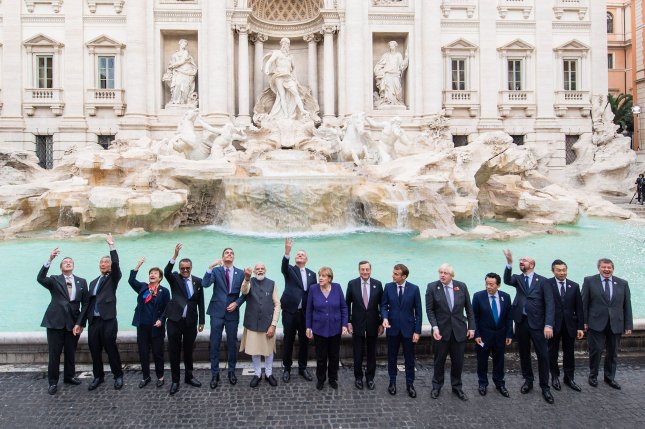April 19 (UPI) — A group of renowned economists are calling on G20 leaders to use their targeting of international wealth owned by Russian oligarchs as an opportunity to create a global asset registry to snuff out tax havens.
In an open letter addressed to the G20 leaders ahead of their Wednesday meeting, the Independent Commission of International Corporate Taxation said the war in Ukraine has shown to the world the need to tackle tax havens is urgent, which can be done by implementing transparency measures.
Signed by economists Joseph Stiglitz, Thomas Piketty, Jose Antonio Ocampo and 11 other commissioners at the ICRICT, the letter states tax havens not only hinder a government’s ability to impose sanctions but threatens the international rule of law that enables countries to coexist.
“As leaders of the planet’s most important countries, you have a responsibility to make urgent decisions to prevent the world from sliding into chaos. And you also have a golden opportunity to do so,” the economists said.
While the pandemic and the Ukraine war have shown the world its economic deficiencies, specifically its lack of economic resilience, the crises have also revealed the extent of inequality and the amount of wealth that has been stowed away in tax havens by the world’s wealthy.
According to Oxfam, the wealth of billionaires grew by $5 trillion amid the pandemic while 160 million people were forced into poverty.
However, the economists said it’s often difficult to know and where this wealth is as it’s often funneled through complex structures into tax havens.
“It is about targeting all oligarchs and all forms of wealth hidden from the tax authorities and the public in general and hidden in jurisdictions with high levels of financial opacity,” the economists said.
To combat this practice, the economists suggest creating a network interconnecting all national asset registries of all different forms of wealth, from yachts to jewelery and artwork as well as cryptocurrencies.
The information will be first collected at the national level, then the regional and finally the world to create a centralized global resource detailing who owns what and where they own it.
“Such a global asset registry is critical in breaking the wall of opacity that impedes the enforcement not just of tax laws, but also those attempting to circumscribe a range of illicit activities,” they said, adding, “a Global Asset Registry would provide a means to record, measure and understand the distribution of global wealth and thereby empower governments and citizens with a thorough and detailed understanding of global inequality.”
Russian invaded Ukraine Feb. 24, attracting international condemnation and numerous tranches of sanctions that have already taken a bit out of Moscow’s economy.
Among the punitive measures are those targeting the wealth of oligarchs in the inner circle of Russian President Vladimir Putin, resulting in several high-profile yacht seizures by international authorities.
“No more excuses, no more pandemics, no more wars to justify lack of action,” the economists said. “To persevere democracy, end spiraling inequality and rebuild the social contract.”
The G20 leaders are scheduled to meet Wednesday for the 2nd Finance Ministers and Central Bank Governor Meeting.

